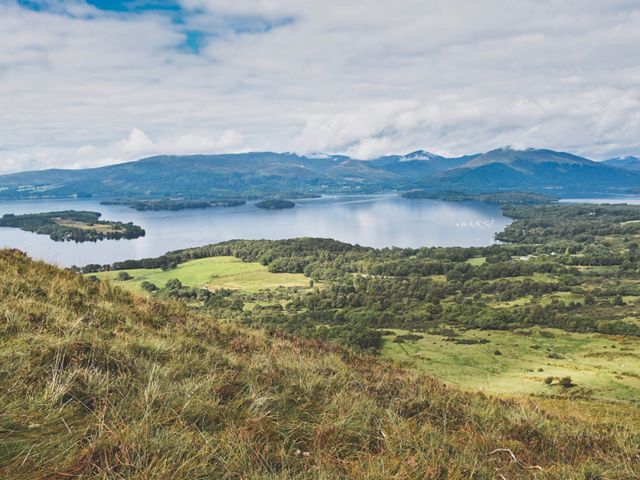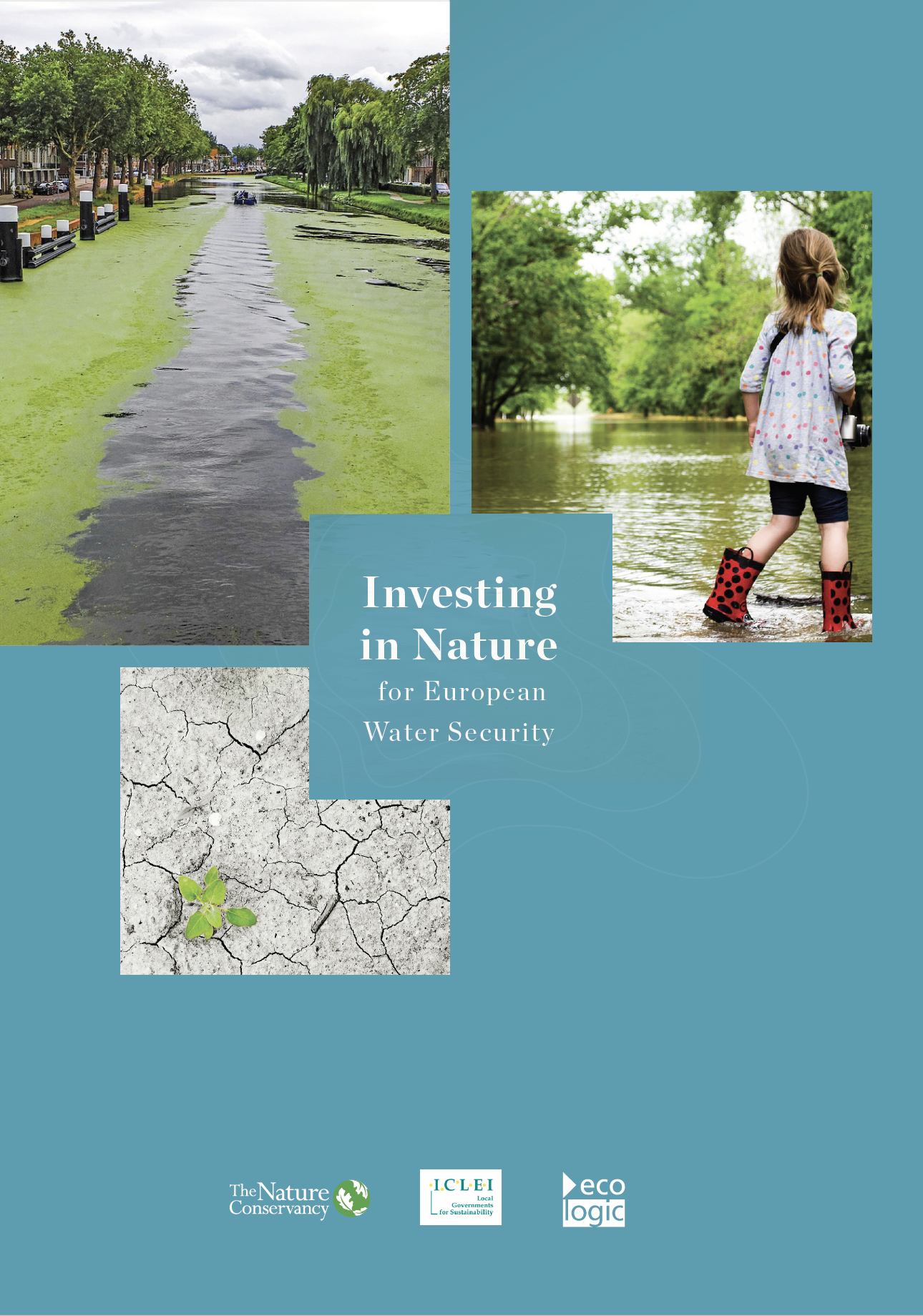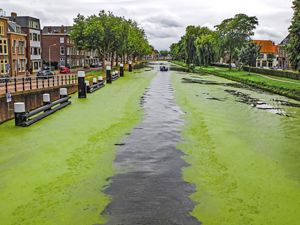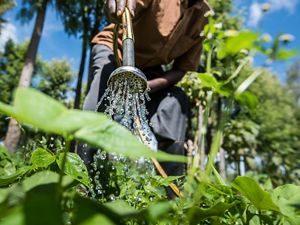How Will Europe Ensure a Water-Secure Future?
The continent is addressing its water challenges with big investments in natural infrastructure
Key Takeaways
The Green Deal provides an ambitious road map for making Europe the first climate-neutral continent by 2050, and multisector investment in nature can accelerate implementation.
Threats to water security are likely to increase as climate change produces more incidences of drought and flooding—meanwhile, just 40 percent of surface water bodies in the region presently merit "good" status.
Large amounts of repayable financing from the public and private sectors could drive nature-based solutions that help preserve Europe's precious freshwater capital, but this year will be key for effective action.
These are defining times in Europe for the future of our lands and waters. Last month the European Commission announced the European Green Deal just 10 days after Ursula Von der Leyen took over the commission presidency (instead of the 100 days originally planned), clearly placing climate and environmental concerns at the top of EU priorities.
The Green Deal provides an ambitious road map for making Europe the first climate-neutral continent by 2050, including a zero-pollution action plan for air, water and soil in 2021; a Biodiversity Strategy to be defined by March 2020; and a “farm to fork” strategy to address all the stages of the food chain, in particular the use of pesticides and fertilizers in agriculture, which currently represents one of the main threats to water resources in Europe.
As significant investments are needed to achieve the ambition set by the European Green Deal, the Commission will present the Sustainable Europe Investment Plan to help meet the additional funding needs. It will combine dedicated financing to support sustainable investments and proposals for an improved enabling framework that is conducive to green investment.
The Commission will work with the European Investment Bank (EIB), which doubled its climate target from 25 percent to 50 percent by 2025 in order to become Europe's "climate bank." In the perspective of a more ambitious EU strategy on climate adaptation, the Commission will also call for public and private investments in nature-based solutions as part of the solution and support the adoption of natural capital approaches in Europe and internationally.
Such an agenda could not be more urgent. In her announcement speech, Von der Leyen pointed at the cost of inaction with respect to water security in particular, highlighting the costs of both river flooding and droughts to European citizens—and to the fact that the incidence of both events is likely to increase with climate change.

A recent evaluation of existing EU water legislation and directives, found that these systems are “fit for purpose,” effectively confirming the legislative and policy framework, and setting the stage for large-scale investments in water security in Europe. The European Environmental Agency (EEA) also released its quinquennial European environment—state and outlook 2020 report (SOER 2020), which confirmed with extraordinary acuity the state of emergency to preserve European environment and the need to limit agriculture’s continued impacts on biodiversity and water and soil pollution.
But the focus now must be on accelerating implementation and strengthening enforcement. This will require the full commitment and collaboration of governments, regulators, the private sector and civil society.
Over the last year, The Nature Conservancy (TNC) has taken a close look at how nature-based solutions can be harnessed for tackling such challenges in our region. This analysis is captured in the report Investing in Nature for European Water Security, produced in collaboration with Ecologic Institute and Local Governments for Sustainability (ICLEI).
The report draws on the most recent data to present a succinct take on the scale of the challenge: Only 40 percent of surface water bodies have reached good status, 25 percent of European groundwater bodies are affected by diffuse pollution stemming from agricultural sources, floods are the costliest natural hazards, and the incidence of droughts is rising even in Northern Europe. It also identifies the roles that nature-based solutions can play in tackling Europe’s water security challenges, as part of hybrid (green-gray) water investment strategies.
Based on this analysis, we believe addressing these challenges will require large amounts of repayable financing from both public and private sources to accelerate the pace of investments in water security. To that end, we recommend establishing multi-sectoral platforms to pull together all concerned actors around a well-defined, science-based plan, which can in turn attract financing at scale—as long as governance structures are established to repay over time.
This may seem like a daunting challenge. But the good news is that the appetite of private investors for investing in natural capital is on the rise. A companion global survey of institutional investors conducted by TNC and Environmental Finance, identifies existing and increasing interest of private investors in including environmental concerns in investments decisions.
Quote
The good news is that the appetite of private investors for investing in natural capital is on the rise.
This year, TNC Europe will focus our efforts on bringing actors together and ensuring that nature finds its place in investment projects for water security, starting with a particular focus on Spain and the UK. We see this as a critical contribution so that capital looking for sustainable finance opportunities can flow to regenerating and maintaining Europe’s precious freshwater natural capital. As a European country severely affected by both droughts and floods, Spain is on the front line of climate change. While parts of the country have a climate comparable to North Africa today, models show its climate could become closer to that of the Sahara in the future. But the government has shown a strong willingness to undertake an ecological transition and radically improve the governance of freshwater resources, and TNC will work with the Ministry for Ecological Transition in Spain to restore critical freshwater ecosystems and create an enabling environment for mobilizing financial resources at scale.
The UK will be going through interesting times in 2020, as the long-delayed Brexit comes closer to being implemented. Still, the British government has declared its firm intention to uphold environmental standards and implement its ambitious 25 Year Environment Plan. As EU funds become less accessible, creativity and drive will be critical to reinvent a rural economy where land stewards are rewarded for the environmental public goods that they provide and where increasingly stressed water resources are more fairly allocated between users. We will continue to work with our partners, including Oxford University, Water Resources East and the Norfolk Rivers Trust in East Anglia, to improve water allocation and mobilize financing at scale for water schemes that give a much greater place to nature.
Many are saying this year will be a “super year for nature,” with pivotal gatherings from the IUCN World Conservation Congress in Marseille in June to the Convention on Biological Diversity (CBD) meeting in Kunming in October. But we need more than gatherings and announcements—this must the year where at-scale implementation kicks in if we are to transition to economic and societal models that are actually in line with planetary boundaries. The European continent has taken it upon itself to show the way in this area, and TNC will continue to support these efforts.
Global Insights
Check out our latest thinking and real-world solutions to some of the most complex challenges facing people and the planet today.






